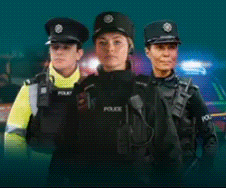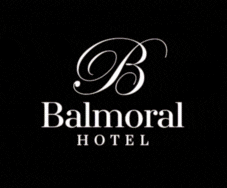Frustration At Trying To Get Oesophageal Cancer Diagnosis
- Daniel May
- Jun 30, 2021
- 6 min read

The symptoms of oesophageal-gastric junction cancer are vague and difficult to determine, but when Sean Greer was sitting in front of a bowl of soup for lunch and finding it really difficult to eat it – feeling like it was climbing a hill – he knew there was something wrong.
“My first recollection of feeling that something was unusual,” Sean said, “was back in September 2019. I’m in a drama club and I remember going down to rehearsals on Sunday afternoons and the feeling I had was that my stomach wasn’t right. I was slightly nauseous and I couldn’t tell if I was full or hungry, which sounds a bit strange, but from then on the messages that my stomach was sending to my brain didn’t seem to make any sense. I had this sense of “Have I not eaten enough?” or “Am I too full?” There was this strange, uncomfortable feeling, but it didn’t stop me from doing anything. Eventually, however, there was just too much discomfort and so eventually I did go to the GP.
“His guess was that it might be helicobacter pylori.(HP) – a bacteria that causes stomach ulcers. There was a simple test for that that proved positive, so they gave me a course of antibiotics for a week and I took those and that eradicated the HP, but it didn’t make any difference to me, so my initial assumption was that the antibiotics hadn’t worked. I was back at the GP in December and he had started to think it might be a kidney stone or gallstone, so he said not to worry and he referred me for an urgent endoscope. I was happy enough with that as, again, I wasn’t in any terrible discomfort. I didn’t think I was losing any weight but, in retrospect, I maybe had but I’d never been very big anyway. If I’d been 20 stone and had lost four stone, it would have been significant, but if you’re nine stone and lose half a stone it’s not that much.”
For a while, things seemed to be OK, but, by late January, Sean still hadn’t heard anything and so he’d started to think the GP hadn’t called the hospital or hadn’t made the referral, and so he called the hospital himself. It turned out that Sean’s name was on the list, but the list was an incredible 72 weeks’ long.
“I didn’t know what ‘urgent’ meant,” Sean continued, “but evidently “urgent” didn’t mean “urgent” at all. That was the first big shock.
“Meanwhile I was starting to feel a bit more uncomfortable. It was a strange feeling in my stomach. The nausea was stronger and I wasn’t enjoying eating as much, but I didn’t have any problem with anything sticking or anything like that. then I started to think maybe I should try and get something done privately – reluctantly – but we had some insurance at work that had actually just come in, so I thought I would try that, but, before I did anything about that, the hospital called me in for an ultrasound.
“I went for the appointment in mid-March for an ultrasound and it was all clear. Everything – stomach, spleen, gall bladder – all was clear. That was good news but equally bad news because I still felt the same and now had no answer. Just the next week, everything went into lockdown and I wasn’t able to get anywhere with the GP or even private clinics and they were only offering consultations over the phone.
“It just felt really uncomfortable and my stomach started to feel cramped – especially early in the morning. I stopped sleeping well and would get up in the middle of the night after two or three hours, so I’d started sleeping on my back. Towards the end of April my wife and mother-in-law persuaded me to go to A & E. I knew it wouldn’t help because they don’t give you endoscopes at A & E, but it was my only option.
“I’d also started to get night sweats – you wake up and your clothes are wet. You wake up after a sweat. It was surprising how wet my clothes would be. I didn’t know that was a sinister symptom. When I was at A & E they treated me well but they weren’t really able to do anything for me beyond the normal observations. I went to them because I had nowhere else to go. What they actually did was send my blood to the lab, asked about symptoms, felt my stomach and told me everything was fine, and keep pushing for an endoscope, which is what I really needed most.
In April I was furloughed from work, but I spent a lot of time in the garden. I was really tired and I didn’t know why. I think symptoms creep up incrementally on people. Some are more reluctant to heed their symptoms and avoid the GP. Because things creep up you don’t take them that seriously but you just start to notice. I couldn’t understand why I was so tired.”
It was much later in early August that my blood was taken again at the request of the hospital consultant who was now on the case after a private CT scan in July. It was then that I got a phone call from the hospital telling me my iron level was 79 and to go, almost right away, for an iron infusion, my iron levels had been slowly going down as a result of the undiscovered tumour which was growing in size.”
“The time period between when I went to the GP and the tumour was confirmed was about nine or ten months – between October 2019 and August 2020. I asked about the stage of the tumour several times, but consultants are very reluctant to tell you the stage because each individual varies and each cancer case varies as well. It was about ten centimetres but not in diameter; I asked the consultant if it was like a big apple but he said more like a banana.”
As with most patients with cancer, Sean’s journey with the disease was just beginning.
“Everyone’s cancer journey is two halves,” he said. “You have symptoms and you’re trying to get it diagnosed and that journey can be long and stressful because you know something’s wrong. It’s nearly like a relief to get a clear diagnosis, but then it’s a scary diagnosis and then you’re looking at the next road ahead which is treatment. It’s bumpy too, but you’re in the hands of experts. When you get the final diagnosis, it’s a mixture of relief and anxiety and fear. I didn’t dwell on things because I didn’t want to scare myself too much.”
Sean immediately started focussing on his recovery.
“I was determined to be positive about it and I’m lucky too that the people around me were very supportive as well. It’s quite hard telling people. That’s a stress in itself. Calling your friends and family – going round to tell your mum – even though they knew something was wrong. You have to explain it seven or eight times to different people.
“I read a bit about it on the internet but Dr Google can get you into lots of areas you don’t want to be in. I found a good book and read it because my idea was to know your enemy. I didn’t get down about it. The hospitals do move quite quickly. Chemotherapy was only a few weeks away and it was good because you felt something was being done. The chemotherapy worked quickly and eating became easier soon after the treatment. I was still anaemic for quite a while – I had to get iron infusions and I was very tired for a long time, but eventually that came back. The chemotherapy lasted until November last year and then I had a brief window of about three or four weeks in December when I could eat well and felt good. That was the best I’d felt in a year. I felt I was on the road to recovery. Then I had surgery on 4 January.
“I’m now walking every day and trying to get used to eating again. I’m looking forward to getting back to work again – I think I’m too young to retire. Being on furlough has been inadvertently helpful for me.”
“It was a weird time for everyone but maybe even weirder for me. Furlough or not though, I wouldn’t have been able to go to work at that time. My workplace was very understanding.”
Sean’s outlook and perspective on his experience is extremely positive and he’s looking forward to what the future holds for him.
“From here on in, I’ll be getting a regular CT scan just to check everything’s OK,” he said. “I think everyone with cancer always has that niggling fear of a return in the future and it’s vital to go back to the doctor if symptoms return, but the pathology results of my surgery were very good. The consultant told me they were very confident that they got it all. My surgery was the very last one of the oesophageal-gastric cancers they operated on before they stopped all the surgeries because of Covid. I got someone else’s slot because they cancelled, so I would only have been getting it now, so I consider myself extremely lucky.
“After experiencing oesophageal cancer, the main thing is that you feel lucky. Lucky to be alive.”




.jpg)

.jpg)








































Comments